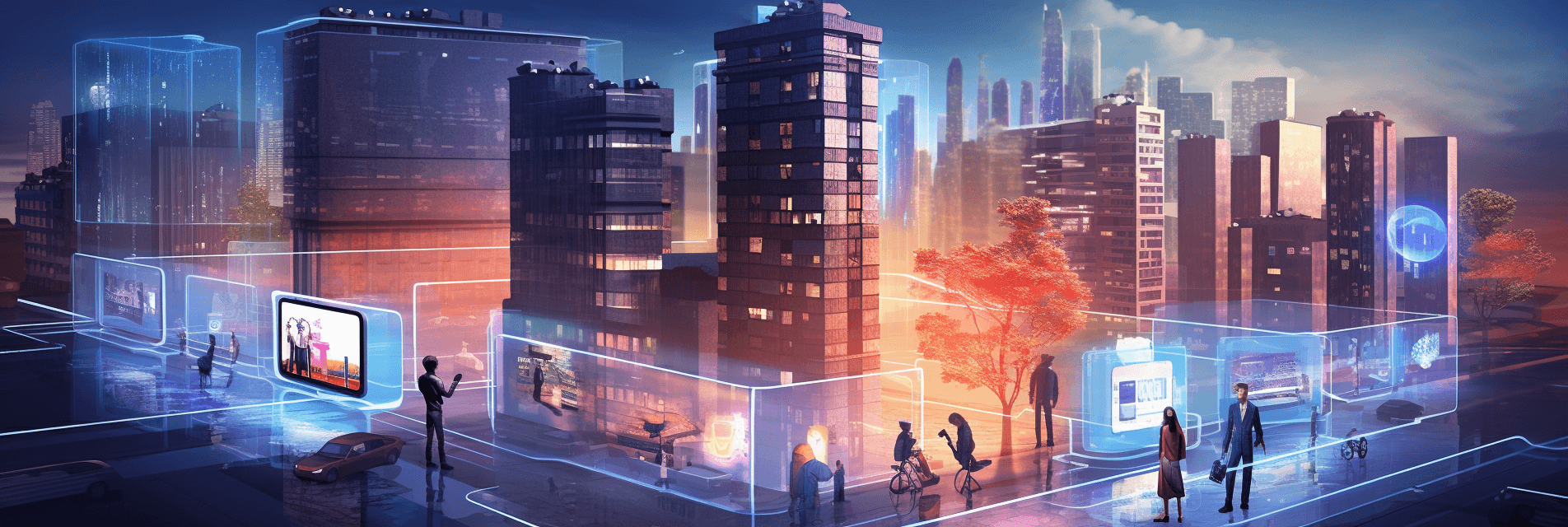As the world hurtles toward a more interconnected and digitally driven era, the integration of smart cities and e-commerce is inevitable. Smart cities utilize digital technology to enhance performance, well-being, and reduce costs and resource consumption across the city. Concurrently, e-commerce is undergoing a massive transformation, leveraging innovative technologies to offer more personalized and efficient shopping experiences. When these two domains converge, the possibilities are limitless.
1. Hyper-localized Shopping

The concept of “local” in e-commerce will take on new meaning in smart cities. With real-time data collection and analysis, e-commerce platforms can identify local trends, preferences, and demands instantly. This hyper-localization will not only allow businesses to stock products more effectively but will also empower local artisans and entrepreneurs to tap into local demands directly.
2. Sustainable Deliveries
One of the defining characteristics of smart cities is sustainability. E-commerce in smart cities will evolve to reflect this principle. Electric delivery vehicles, drone deliveries, and efficient route optimization are just the tip of the iceberg. We can also expect consolidation centers at the outskirts of cities, where goods are batched for minimal transportation emissions and disruptions.
3. Real-time Inventory Management
With the integration of IoT and AI, real-time inventory management will become the norm. Retailers will be equipped to adjust prices based on demand, ensuring that waste is minimized and products are always available when consumers want them. Gone will be the days of “out of stock” notifications, as predictive analytics will enable businesses to forecast demand with pinpoint accuracy.
4. Augmented Reality (AR) Shopping

The integration of AR into e-commerce platforms will transform online shopping. Imagine being able to “try on” clothes, accessories, or even preview how furniture looks in your living room before making a purchase. In smart cities, with enhanced connectivity and data speeds, AR shopping will offer a seamless and interactive shopping experience, bridging the gap between online and offline retail.
5. Personalized Shopping Experiences
Data-driven insights will propel e-commerce platforms to offer highly personalized shopping experiences. By analyzing a user’s browsing history, purchase patterns, and even real-world behavior, platforms can curate product suggestions, deals, and content that are tailor-made for the individual.
6. Frictionless Payments
The evolution of payment systems in smart cities will revolutionize e-commerce transactions. With blockchain technology, digital wallets, and biometric verification methods, payments will become more secure and seamless. Instantaneous transactions, direct peer-to-peer payments, and even digital currencies might become standard features of e-commerce in smart cities.
7. Enhanced Security
One major concern for e-commerce has always been security. In smart cities, with advanced AI-driven surveillance systems and encrypted data transfer protocols, both consumers and businesses can expect a more secure online shopping environment. Enhanced authentication processes, real-time fraud detection, and secure data storage solutions will bolster consumer confidence.
8. Integration with Smart Home Systems

E-commerce will no longer be limited to individual purchases. With the rise of smart homes in smart cities, we can anticipate e-commerce platforms integrating with home systems. For instance, a smart refrigerator might detect that you’re running low on milk and automatically place an order for you, ensuring that you never run out of essentials.
9. Community-driven Platforms
The community will play a pivotal role in shaping e-commerce in smart cities. Platforms might allow local communities to voice their needs, initiate group purchases for discounts, or even set up local trade systems. Such systems will promote local businesses and foster a sense of community in an increasingly digital world.
10. Environmentally-Conscious Shopping
Last but not least, smart cities will emphasize sustainability, and this ethos will permeate e-commerce. Platforms might prioritize and badge products that are eco-friendly, offer incentives for sustainable choices, or even provide insights into the environmental impact of individual purchases.
In Conclusion
The fusion of e-commerce and smart cities promises a more intuitive, efficient, and sustainable shopping experience. As technology continues to evolve and smart cities become a global norm, e-commerce will undergo a transformation that will reshape commerce for the better. For businesses and consumers alike, the future holds immense potential, making it an exciting time to be a participant in the global e-commerce ecosystem.
